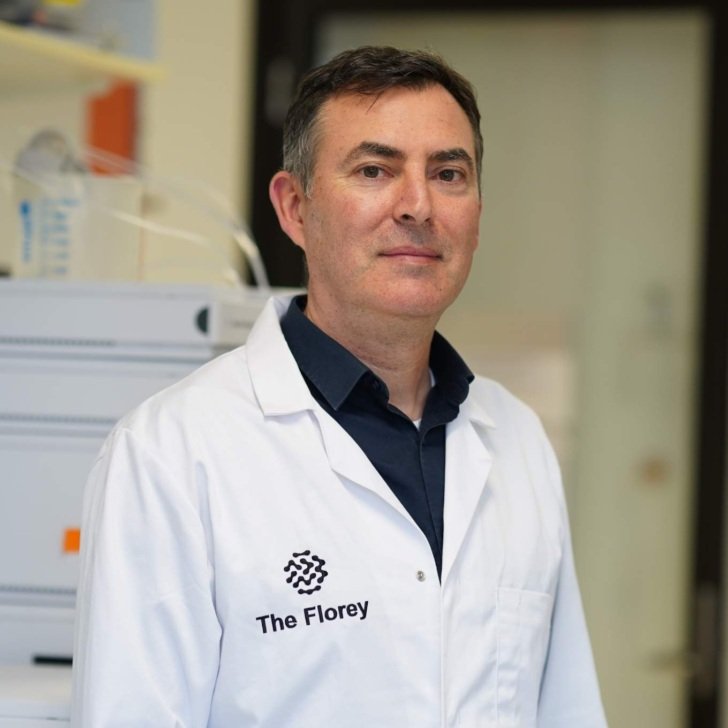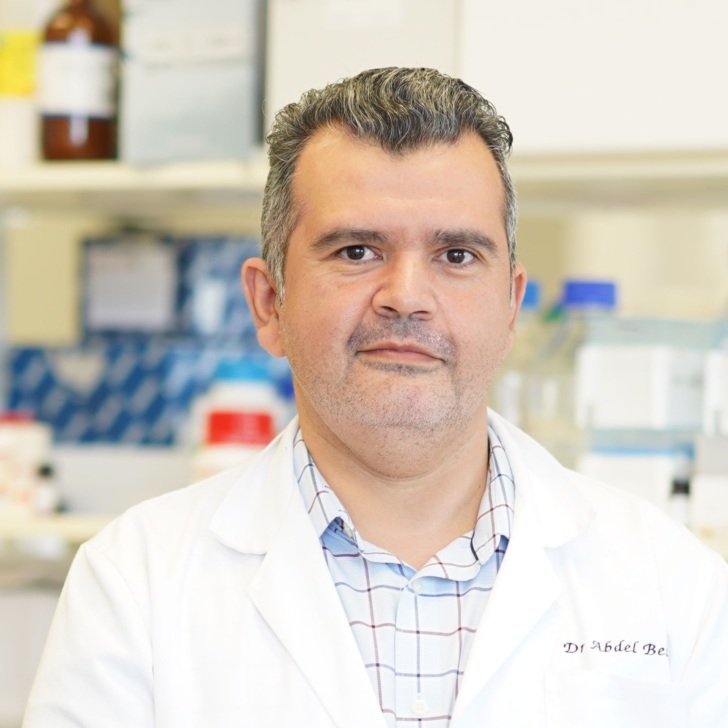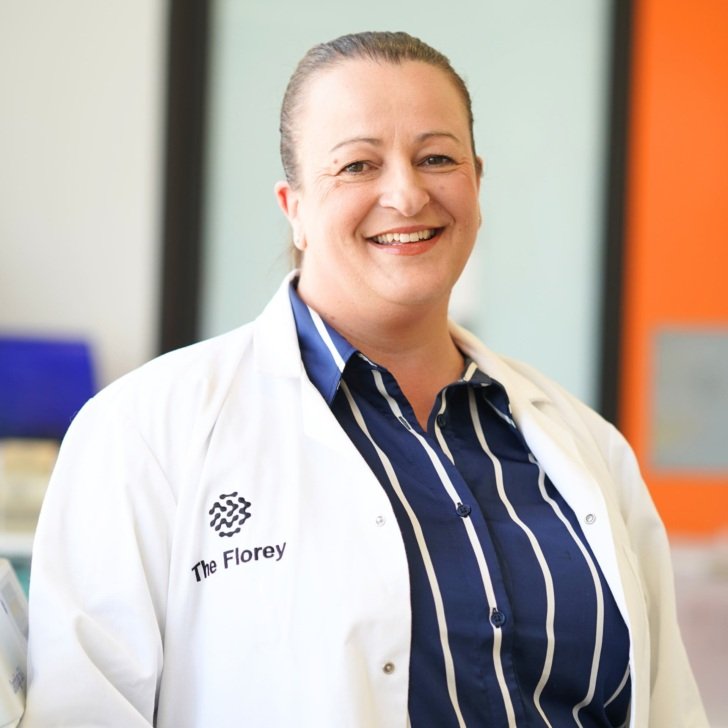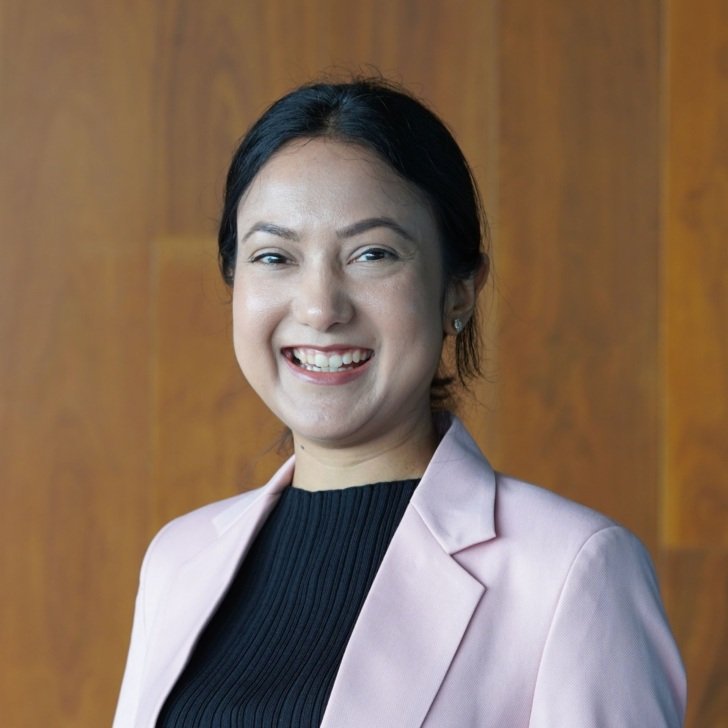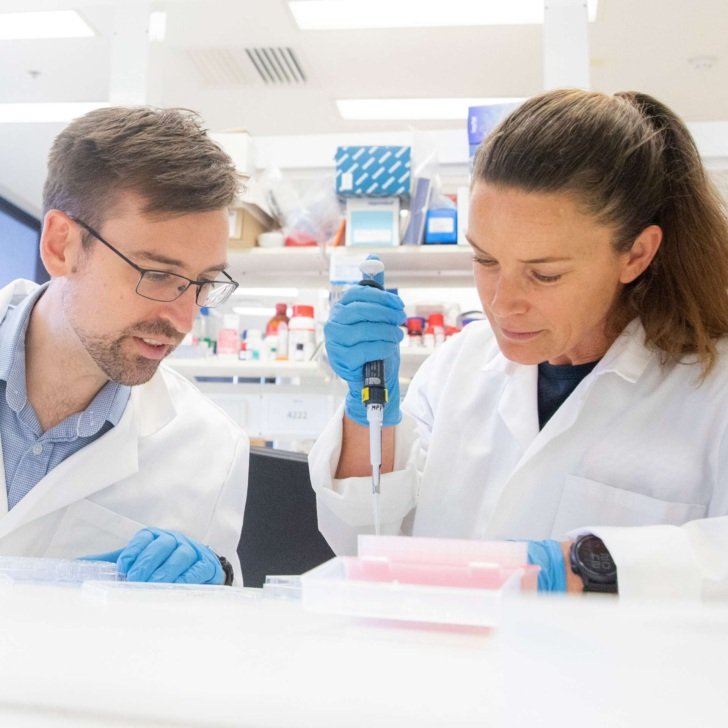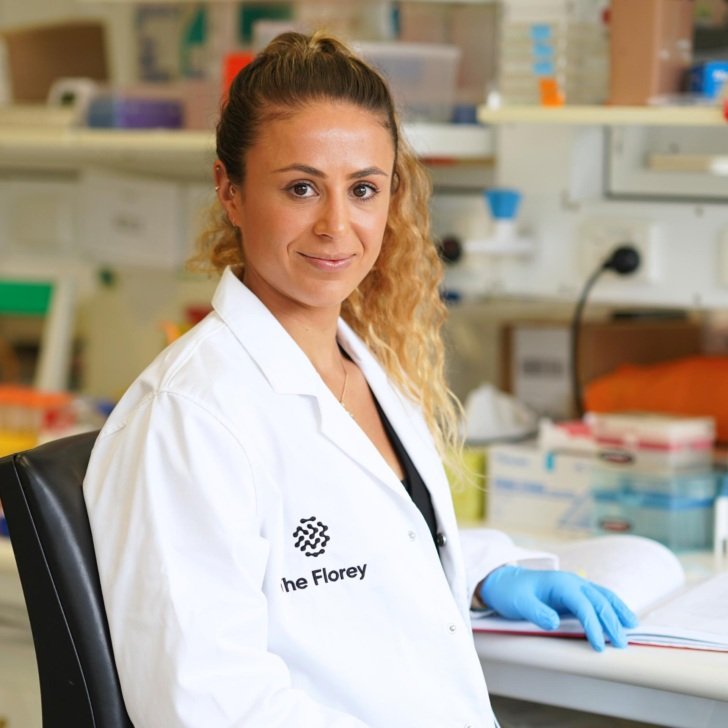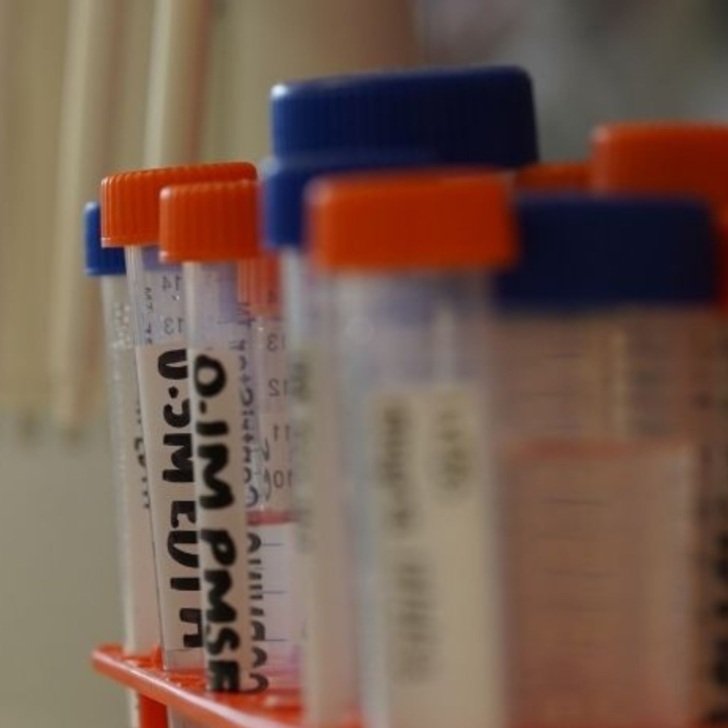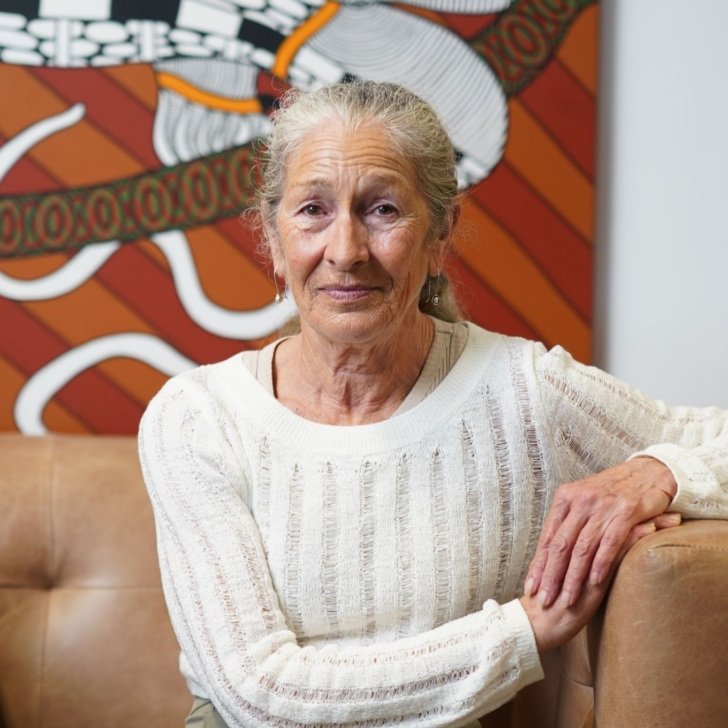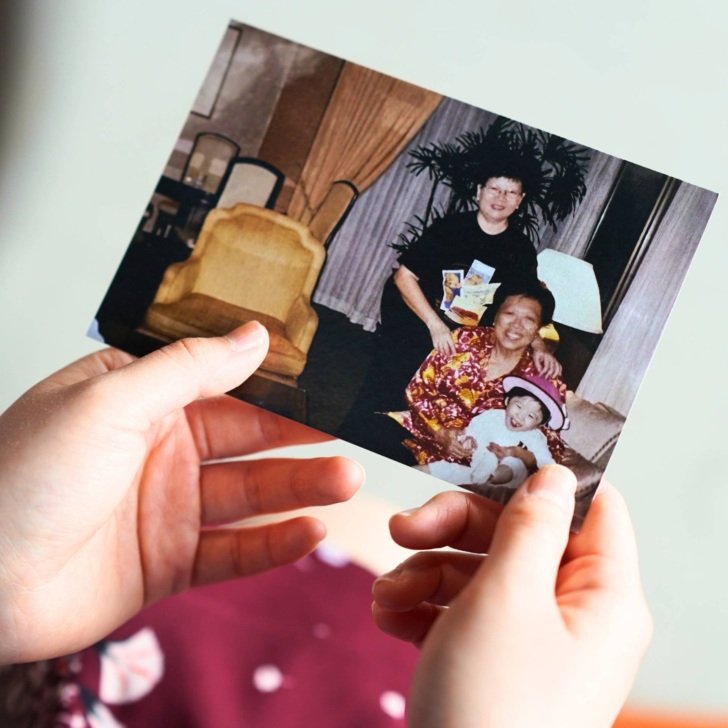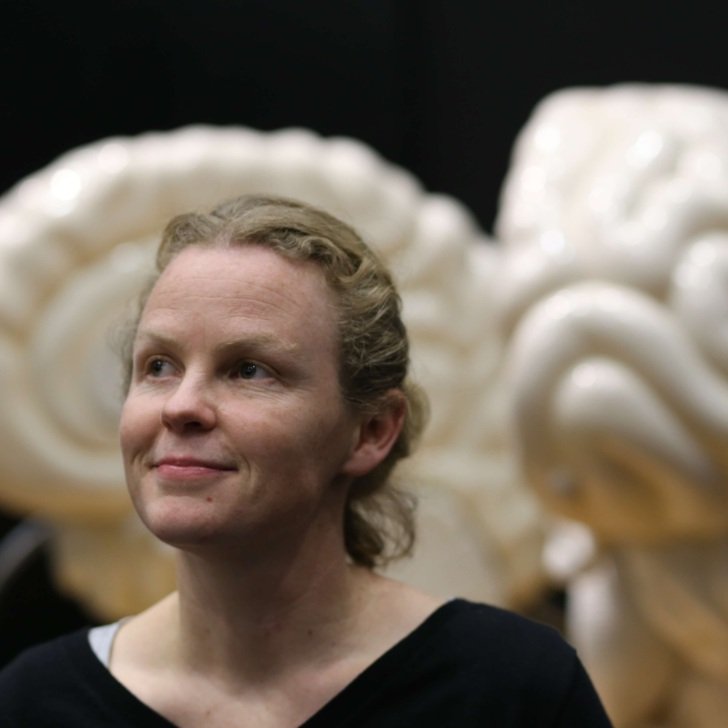
Dementia Research Priority
Making dementia preventable and treatable
Florey researchers are recognised as world leaders in dementia research – from defining the natural history of the disease and its pathology, to taking drugs from the laboratory to clinical trials.
Future research in dementia at The Florey will build upon our strong track record to identify new drug targets, improve patient diagnosis, trial new treatments and advance care.
We are working towards a future where dementia is detected early and is effectively managed with new treatments.
Focus areas
Develop biomarkers to diagnose dementia
The Florey has established a strong track record in developing and validating novel imaging and fluid biomarkers for Alzheimer’s disease. Building on these advances, the Florey is now expanding its focus to include biomarker discovery for non-Alzheimer’s dementias and other neurodegenerative conditions.
Discover the causes of dementia
Central to uncovering the mechanisms that drive neurodegeneration is analysing patient-derived biospecimens including thousands of brain, cerebrospinal fluid, and blood samples, coupled with mechanistic studies in cell culture and animal models. Key research priorities include investigating cell death pathways, innate immune activation, cardiovascular contributions, and metabolic dysfunction.
Find new medications for dementia
The Florey has strong expertise in advancing novel therapeutics into clinical trials. Building on this foundation, the current focus has shifted toward mRNA-based therapies. We are now developing a dedicated platform for mRNA therapeutics, with multiple research groups collaborating to drive this innovative program forward.
Improve the management of dementia
Supported by the Centre of Research Excellence in Enhanced Dementia Diagnosis, along with MRFF and industry funding, The Florey is partnering with clinical services to implement new models of care for the diagnosis and management of dementia.
Research impact
mRNA-based therapies for dementia
Since mRNA vaccines were developed during the COVID-19 pandemic, researchers around the world have been working on ways to harness the potential of this technology to treat neurological conditions.
With government funding, Florey researchers will develop an mRNA-based system that crosses the blood-brain barrier and aims to slow or even halt disease progression, as well as an mRNA vaccine that aims to prevent Alzheimer’s disease from developing.
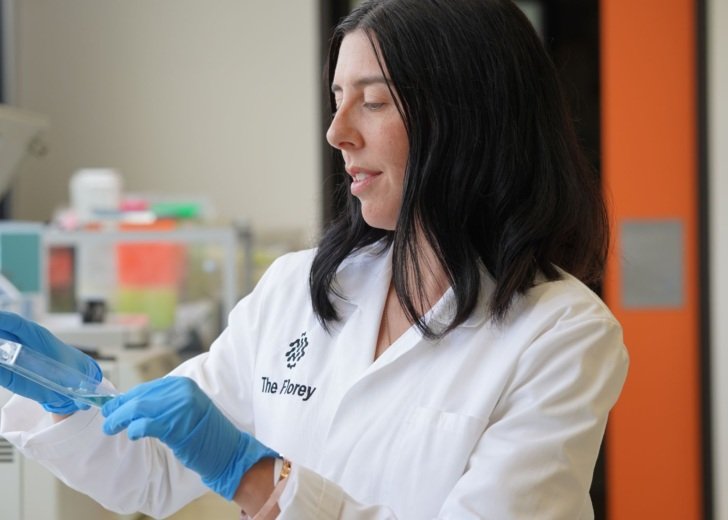
A ‘completely different picture’ of Alzheimer’s disease
Dr Abdel Belaidi has been studying Alzheimer’s disease at The Florey for the past 10 years. His father’s diagnosis motivated Dr Belaidi to focus his research on treatments that aim to improve the quality of life for dementia patients and their families.
“My personal story with my father taught me to see a clinical aspect that a normal researcher may not be confronted with in their daily life.”

Conditions and diseases we study
- Alzheimer’s disease
- Vascular dementia
- Dementia with Lewy bodies
- Frontotemporal dementia
- Creutzfeldt-Jakob disease
- Childhood dementia (Niemann-Pick disease type C)
Key projects
Enhancing dementia diagnostics
Researchers have shown the potential for fluid and imaging biomarkers for Alzheimer’s disease. The most promising biomarkers will be tested in memory clinics in Australia to assess their value in impacting diagnosis and patient management for decisions by doctors as they diagnose patients. The potential outcome of this research will be that patients can access accurate diagnostics when being assessed for Alzheimer’s disease.
Improving blood flow in the brain to treat dementia
We previously discovered that zinc is an important regulator of blood flow in the brain, and identified a new class of drugs that influence blood flow. We’re now testing one candidate drug in the setting of cardiopulmonary bypass. This surgery often results in cognitive dysfunction immediately after surgery and increases risk of dementia over the medium to long term. We’ll test if this treatment mitigates this complication of surgery, and if so, the treatment could be applied in other contexts to improve blood flow in the brain.
Studying imaging biomarkers and lifestyle
The Australian Imaging, Biomarker and Lifestyle (AIBL) study aims to investigate the natural history of Alzheimer’s disease, from preclinical onset to development of dementia. The study collects biospecimens, brain images and clinical and cognitive data into its databank with the aim to discover which biomarkers, cognitive characteristics, and health and lifestyle factors predict development and progression of symptomatic Alzheimer’s disease.
Discovering new drug targets
The mechanisms of neurodegeneration in Alzheimer’s disease have not yet been established. By examining a large sample set of post-mortem case material and parallel detailed cellular investigations we have developed in understandings of the role of the cell death modality, ferroptosis, in Alzheimer’s disease. New drugs and therapies are now being developed from these discoveries.
Diagnostic and biomarker platforms
National Dementia Diagnostics Laboratory
The National Dementia Diagnostics Laboratory (NDDL) is an accredited pathology testing laboratory, providing cerebrospinal fluid diagnostic testing for Alzheimer’s disease and Creutzfeldt-Jakob disease. The NDDL provides diagnostic services to the medical community, scientific researchers and the pharmaceutical industry.
Australian National Creutzfeldt-Jakob Disease Registry
Creutzfeldt-Jakob disease is one of the human forms of the transmissible spongiform encephalopathies, also referred to as prion diseases. The Australian National Creutzfeldt-Jakob Disease Registry is responsible for diagnostic services and the national surveillance of clinically suspected and diagnosed human prion diseases in Australia.
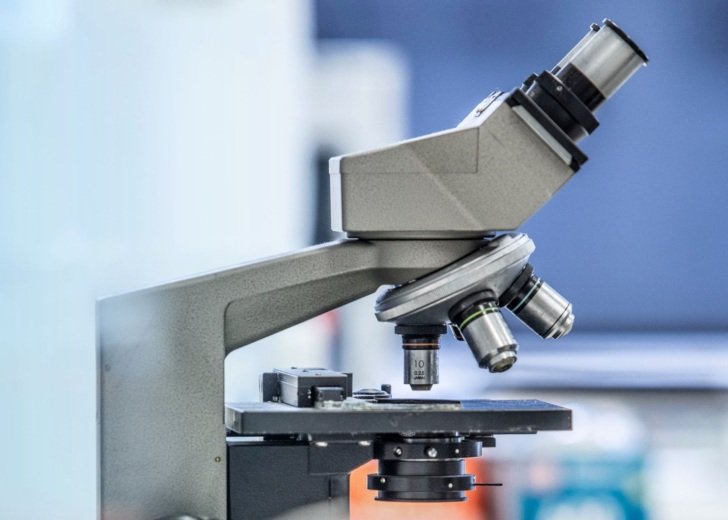
BioAnalytics Australia
BioAnalytics Australia provides services for protein quantification in biological samples including plasma, serum and cerebrospinal fluid. Using an automated immunoassay platform, protein biomarkers can be quantified for a range of biological processes and diseases, including neurodegeneration, inflammation, oncology and infectious diseases.
Research groups
Find out more about the research groups studying dementia at The Florey.
Latest research news
Source information
- Dementia in Australia, AIHW, Australian Government
- Based on Dementia Australia’s analysis of the following publications: M.Kostas et al, 2016 National Aged Care Workforce Census and Survey – The Aged Care Workforce, 2016, Department of Health, 2017, p.xv, NATSEM, Dementia Prevalence in Australia, Dementia Australia, 2018, Alzheimer’s Disease International and Jarolinska Institutet, Global estimates of informal care, Alzheimer’s Disease International, 2018, p.8, Access Economics (2010) Caring Places.

